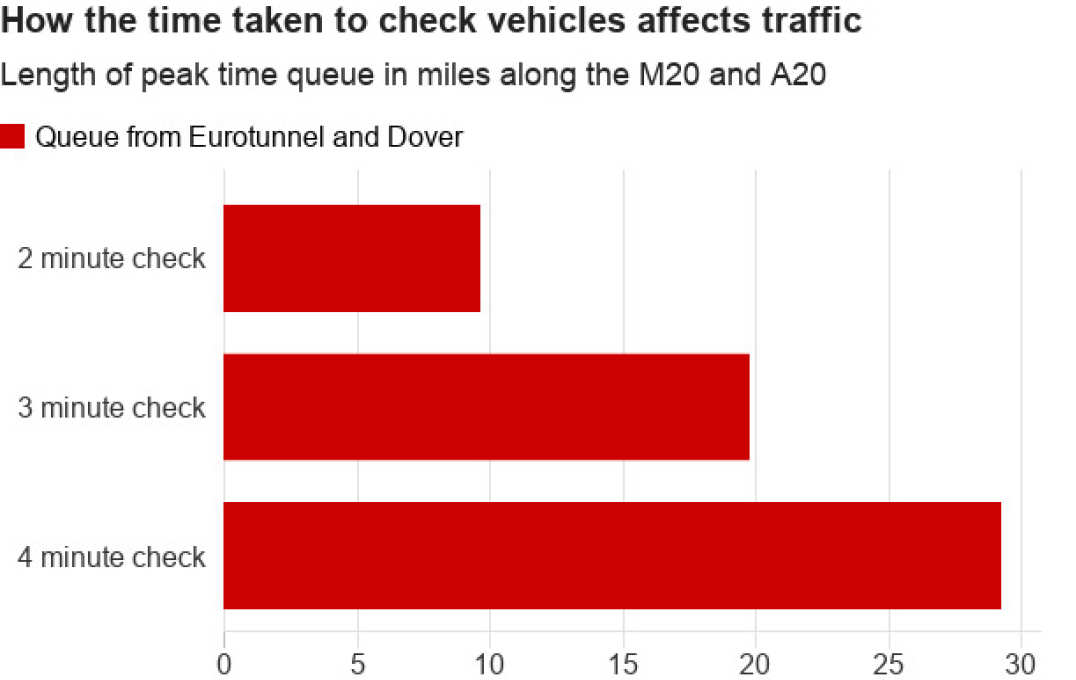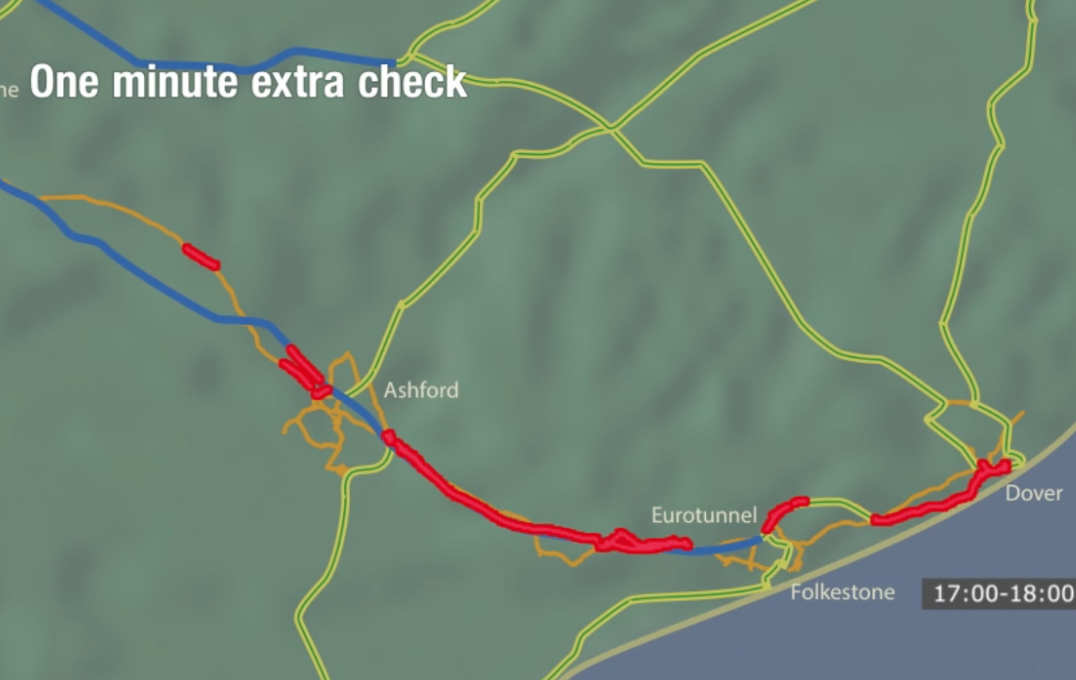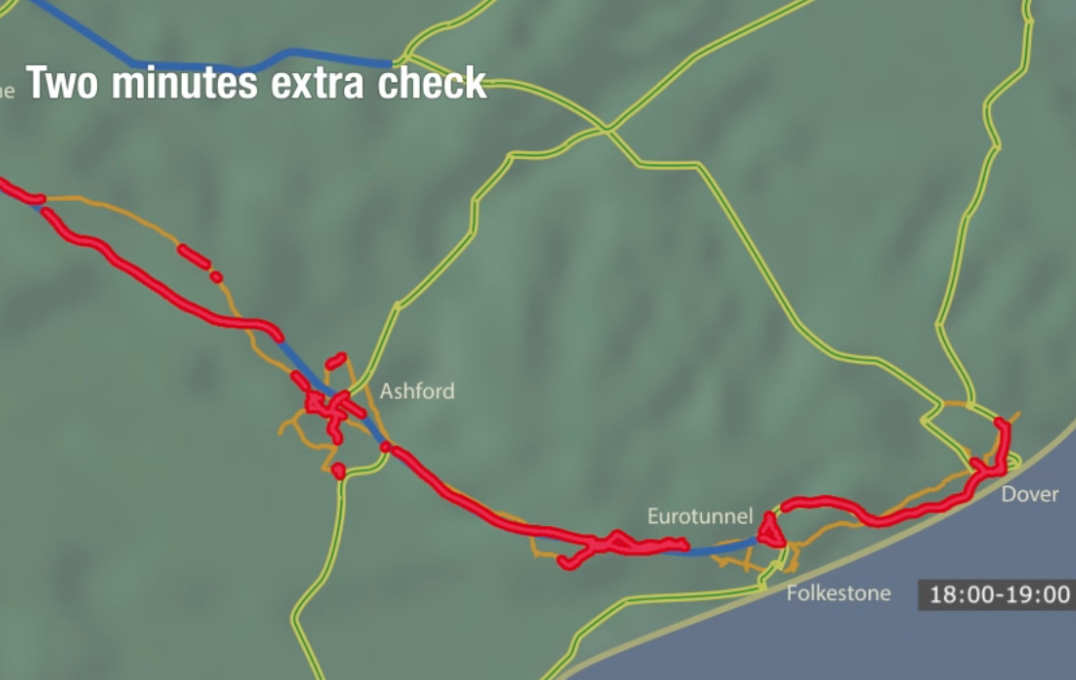How Imperial’s findings on post-Brexit borders caught the eyes of politicians
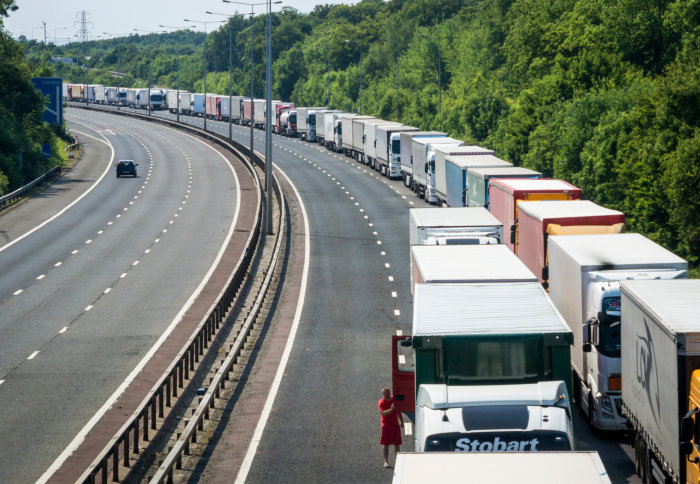
Queue of lorries on the M20
Dr Ke Han has reflected on his work to predict post-Brexit traffic conditions on the M20/A20 motorway in Kent.
Imperial College London's Dr Han has warned of ‘paralysis’ on the M20/A20 motorways if we don’t avoid customs delays after the UK leaves the European Union (EU).
Commissioned by the BBC, his team created simulations of how motorway queues could stack up after longer border checks per vehicle at the ferry port in Dover, and at the Eurotunnel port in Folkestone, both in Kent.
They found that two extra minutes spent on each vehicle at the border could more than triple the existing queues on the M20/A20, to 29 miles. At peak times, Kent could see nearly five hours of traffic delays.
His work prompted the government to actively seek preventative measures like those previously proposed. The include using additional lorry parks along the M20/A20, and electronic checks at ferry and Eurotunnel ports.
Dr Han, who is based at Imperial's Department of Civil and Environmental Engineering and Centre for Transport Studies reflected on the work with Caroline Brogan.
Why and how did you conduct this research?
The UK currently has a free-flowing border in Kent: Passport checks are minimal and freight vehicles don’t complete customs declarations. It currently takes each vehicle two minutes on average to get through customs.
Check times will change when the UK leaves the EU, but until now we haven’t predicted what that will look like.
It is absolutely clear that this cannot happen. Chris Grayling MP Secretary of State for Transport
As an expert on traffic modelling and management, I was asked by the BBC to quantify the potential delays in hypothetical scenarios of one and two minutes extra delays per vehicle.
The challenge was to predict congestion in terms of queue length and travel time. This meant measuring queuing patterns of freight and passenger vehicles as well as their interactions with local traffic.
I used traffic simulations to create the results with different border delays, which I displayed on our Data Science Institute’s Data Observatory, and appeared on the BBC to talk them through the findings.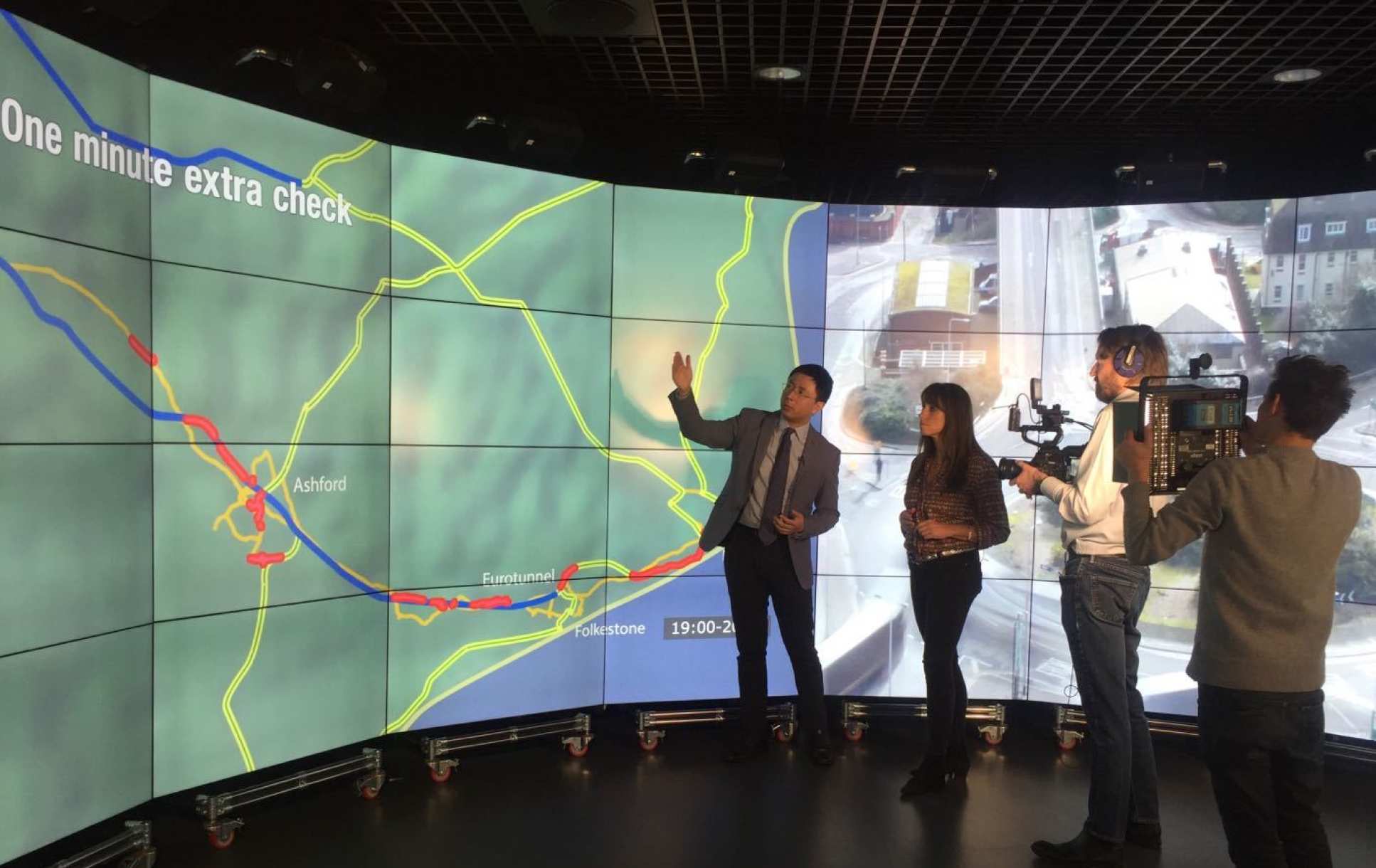
Tell me more about your calculations.
The simulation showed traffic density and speed on the M20/A20’s 40-mile motorway segment.
These factors were influenced by how long each vehicle spent at the border, so toggling this time from two minutes (the current average) to four minutes (the assumed potential check time post-Brexit), let us estimate the queue lengths and travel times.
What reactions have you had?
Our findings have major implications for the ongoing border negotiations for when Britain leaves the EU, so naturally, it received much attention.
Now we have brought potential problems to light, we can do something about them. Dr Ke Han Department of Civil and Environmental Engineering
Our research was reported by BBC Inside Out South East, who commissioned the research, and BBC Online.
It was also discussed in that week's BBC Question Time, and was featured in a number of other outlets like the Mail on Sunday.
On Question Time, Transport Secretary Chris Grayling said it is “absolutely clear that this cannot happen.”
Dover MP Charlie Elphicke said our research “shows the UK needs a free trade deal with the EU.”
I’m pleased with the reactions and coverage. The mainstream media is vital in communicating issues of national importance. Now we have brought potential problems to light, we can do something about them.
What’s next for your research?
Next, I will re-run the simulations taking lorry parks and electronic customs into account, to see whether these measures might help reduce queues on Kent's motorways.
Full report: “M20/A20 Congestion Prediction with Post-Brexit Border Delays” by Ke Han, Daniel Graham, and Washington Ochieng.
Data for this study were provided by Highways England and the Department for Transport to describe time-varying traffic loads as well as the mix of passenger vehicles, light goods vehicles, and heavy goods vehicles.
Image Credits:
Main image: Shutterstock/Sue Martin
All other images: Imperial College London/Ke Han
Article text (excluding photos or graphics) © Imperial College London.
Photos and graphics subject to third party copyright used with permission or © Imperial College London.
Reporter
Caroline Brogan
Communications Division
